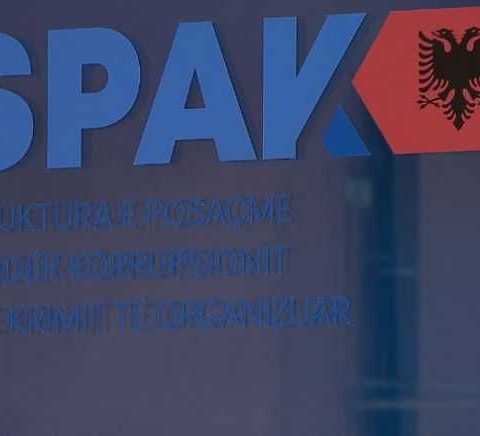Aaron Savoy-Pasha | Albanian Institute for International Studies (AIIS)
Albanian higher education exhibits documented integrity risks, particularly with respect to grading, favoritism, and political interference. As noted in a peer-reviewed study, peer and political pressures shape the assessment process and erode degrees’ legitimacy (Shahini, Zhllima, and Imami, 2024). Transparency International’s most recent Corruption Perceptions Index places Albania at 80th out of 180 countries, with a score of 42 out of 100, further suggesting the need for credible safety measures in public institutions, including universities (Transparency International, 2025). These claims illustrate that policies on paper are insufficient. Students, faculty, and administrators need clear rules, open reporting mechanisms, and a thorough public record demonstrating that those systems exist (Shahini et al, 2024; Transparency International, 2025).
In the United States, universities have created different methods to involve students directly in protecting integrity and reporting misconduct. While this is not perfect, these methods can provide lessons for public universities in Albania.
On many U.S. campuses, students directly participate in Honor Systems to encourage personal accountability and peer enforcement. For example, Princeton’s Honor Committee is entirely student-run, and investigates and adjudicates exam-related violations under a publicly posted constitution. As part of the Honor System, students have a responsibility to report suspected violations, with private reporting available for students (Princeton University, 2024a; 2024b; 2024c). Returning to the academic integrity space, the University of Maryland reinforces this approach to culture-building by asking students to handwrite and sign a pledge on examinations and assignments as a mechanism of community responsibility (University of Maryland, 2024a; 2024b). Washington and Lee University has even taken it further by designating student ownership of integrity to an elected student Executive Committee, who reports to the university’s administration as part the single sanction honor system (Washington and Lee University, 2025a; 2025b).
Research backs it up. Donald McCabe, Linda Treviño, and Kenneth Butterfield concluded from almost 10 decades worth of research that campuses that practice consistently enforced honor codes have lower reported levels of academic misconduct. Their research demonstrated that having rules, having clear expectations created, and having students enforce promotes an academic integrity climate that becomes cultural based and not just compliance mode (McCabe, Treviño & Butterfield, 2001; 2002).
Further, as entry to report, the University of Virginia just transitioned from a world in which shock and awe lead to automatic expulsion to three levels of a multi-sanctioning platform for longer-term educational restoration and penalties the require fit. The Honor Committee has stated that now there is an increased willingness to report (University of Virginia, 2022; 2023; 2024a; Inside Higher Ed, 2022). Independent coverage also noted the proportionality model enhances legitimacy, and students are more willing to participate (University of Virginia, 2022; 2023; 2024a; Inside Higher Ed, 2022).
In addition to academic misconduct, U.S. Universities offer anonymous or confidential hotlines usually through a third-party vendor so students, employees, or even members of the public can report fraud, conflicts of interest, or other violations. Rice University has an EthicsPoint portal that enables concerns to be submitted anonymously and assigns those submissions to the appropriate office. The University of Minnesota has UReport, which operates similarly, and Brown University and Stanford University also have hotlines with statements against retaliation to protect whistle-blowers (Rice University, n.d.; University of Minnesota, 2025a; 2025b; Brown University, 2025a; 2021; Stanford University, 2025a; 2022; 2025b).
The effectiveness of these reporting mechanisms [is anchored] by national compliance policies. Title IX requires universities [to provide] processes dealing with sex discrimination and harassment (U.S. Department of Education, 2024). The Clery Act requires universities to disseminate a yearly security report and timely warn of crimes affecting campus safety (Clery Center, 2024; U.S. Department of Education, 2020). Research sponsored by federal funds has procedures for misconduct under 42 CFR Part 93 that describes the steps to investigate fabrication, falsification, or plagiarism (Office of Research Integrity, 2005 and 2024; eCFR, 2025). Even though different frameworks enforce different types of misconduct, they all are strong models of transparency and accountability. Enforcement will differ from university to university in practice but the rules themselves are publicly documented and enforceable.
Transparency is more meaningful when there is an outcome that is made public. At the University of Virginia, the annual report summary document the timely cases and reports from this new sanctioning. Nationally, the U.S. Department of Education has enforced the Clery Act with serious consequences, including a historic enforceable amount. Liberty University received a 14 million fine in 2023 for failure to timely report (University of Virginia, 2024a; Associated Press, 2023). Those are two examples showing that universities are held accountable if they fail to issue expectations.
Rice University exemplifies operational synergy among these various methods on one campus. For over a century (since 1912), its student run Honor System has included a pledge and an Honor Council that investigates and adjudicates. Documents available in the public domain frame the purpose of the pledge, the Council, and student reports, and their respective roles in addressing violations (Rice University, 2025a; 2025b; 2025c; 2025d). For other, non-academic issues, Rice uses EthicsPoint, which is a third party operated hotline that provides anonymity options. The Title IX office, also references this system for reporting incidents. These systems create lower barriers to reporting and communicate that the system responds to integrity violations seriously (Rice University, n.d.; 2024; 2025e). They do not disclose outcome data beyond what the Federal law requires, so I cannot provide or verify the statistics sourced from the numbers of reports to sanctions. However, the options are documented and available.
For Albanian Universities, the lessons learned are pragmatic. Establishing student owned honor codes with proportional sanctions would provide legitimacy and would provide incentive to report. Creating anonymous reporting processes with anti-retaliation assurances would create a safer way to report. Publishing yearly reports on cases and resolutions in even the simplest form, would create trust. Aligning research integrity protocols with internationally recognized research integrity standards would ease the treatment of academic integrity violations. Finally, adopting the six values that comprise the International Center for Academic Integrity—honesty, trust, fairness, respect, responsibility, courage—as part of student orientation and faculty policy could lead to a long-term cultural change (ICAI, 2024).
These changes do not need to happen simultaneously. You could pilot an honor system or a hotline in one faculty, publish the findings of a year, and consider expanding the process or systems to others. In places where the culture is silence, even incremental evidence that reporting leads to action would be the start of cultural change (Shahini et al., 2024).
This article is published in the framework of the project ” Coalition for Clean universities: enhancing integrity in Albanian tertiary education “, implemented by the Albanian Institute for International Studies (AIIS) and financed with a sub-grant awarded in the context of the project “Civil society against Corruption – from a Local Challenge to a European Response” funded by the European Union.
Bibliography
Shahini, A., Zhllima, E., and Imami, D. 2024. Politics of Corruption in Albanian Higher Education. Studies of Transition States and Societies.
https://www.ssoar.info/ssoar/bitstream/handle/document/94807/ssoar-stss-2024-shahini_et_al-Po litics_of_Corruption_in_Albanian.pdf
Transparency International. 2025. Albania country page, Corruption Perceptions Index 2024. https://www.transparency.org/en/countries/albania and CPI 2024 overview
https://www.transparency.org/en/cpi/2024
International Center for Academic Integrity. 2024. Fundamental Values of Academic Integrity. https://academicintegrity.org/aws/ICAI/pt/sp/values
Princeton University. 2024a. Honor Committee – overview. https://honor.princeton.edu/front
Princeton University. 2024b. Undergraduate Honor System – reporting obligations. https://ua.princeton.edu/policies-resources/undergraduate-honor-system
Princeton University. 2024c. Compliance Hotline for students – EthicsPoint. https://oac.princeton.edu/compliance/hotline/students
University of Maryland. 2024a. Honor Pledge. https://studentconduct.umd.edu/you/students/honor-pledge
University of Maryland. 2024b. Code of Academic Integrity. https://policies.umd.edu/academic-affairs/university-of-maryland-code-of-academic-integrity
Washington and Lee University. 2025a. The Honor System – student responsibility and single sanction.
https://my.wlu.edu/executive-committee/the-honor-system and White Book: https://my.wlu.edu/executive-committee/the-honor-system/the-white-book
University of Virginia. 2022. Honor Constitutional Referendum – multi-sanction system.
https://honor.virginia.edu/honor-constitutional-referendum
University of Virginia. 2023. A New Era for Honor – overview of sanction reform. https://honor.virginia.edu/new-era
University of Virginia. 2024a. Honor Committee FAQ and Sanctioning resources. https://honor.virginia.edu/resources/frequently-asked-questions and https://honor.virginia.edu/resources/sanctioning
Inside Higher Ed. 2022. UVA students vote to end honor code expulsion policy.
https://www.insidehighered.com/news/2022/03/16/uva-students-vote-end-honor-code-expulsion- policy
Rice University. n.d. Reporting Concerns – EthicsPoint. https://rucompliance.rice.edu/reporting-concerns-ethicspoint
Rice University. 2025a. Honor Code – Official Site. https://honor.rice.edu/
Rice University. 2025b. Office of Academic Advising – Honor Code. https://oaa.rice.edu/policies-and-procedures/honor-code
Rice University. 2025c. General Announcements – Honor System. https://ga.rice.edu/undergraduate-students/rights-responsibilities/honor-system/
Rice University. 2025d. Honor Code FAQ. https://honor.rice.edu/frequently-asked-questions/
Rice University. 2024. General Announcements – Ethical Concerns Notice about EthicsPoint. https://ga.rice.edu/important-notices/ethical-concerns/
Rice University. 2025e. Title IX FAQs – Anonymous Reporting via EthicsPoint. https://titleix.rice.edu/faqs
University of Minnesota. 2025a. UReport – Reporting Suspected Misconduct. https://compliance.umn.edu/report https://policy.umn.edu/operations/misconductreporting
University of Minnesota. 2025b. University Compliance Program Overview.
University of Minnesota. 2025c. UReport FAQ and Procedure. https://policy.umn.edu/operations/misconductreporting-faq https://policy.umn.edu/operations/misconductreporting-proc01
Brown University. 2025a. Anonymous Reporting Hotline Policy and FAQs. https://policy.brown.edu/policy/anon-reporting-hotline
https://compliance.brown.edu/reporting-concerns/anonymous-reporting-hotline-faqs
Brown University. 2021. Non-Retaliation Policy. https://policy.brown.edu/policy/non-retaliation
Stanford University. 2025a. University Compliance Helpline and Report Portal. https://uco.stanford.edu/helpline
https://uco.stanford.edu/report
Stanford University. 2022. Administrative Guide – Non-Retaliation Policy.
https://adminguide.stanford.edu/chapters/guiding-policies-and-principles/university-code-conduc t/non-retaliation-policy
U.S. Department of Education. 2024. Title IX Final Rule Summary.
https://www.ed.gov/media/document/title-ix-final-rule-summary-33970.pdf
Clery Center. 2024. The Clery Act – Overview. https://www.clerycenter.org/the-clery-act
U.S. Department of Education. 2020. Clery Act Appendix, Federal Student Aid Handbook. https://www.ed.gov/sites/ed/files/admins/lead/safety/cleryappendixfinal.pdf
Office of Research Integrity, U.S. HHS. 2005 and 2024 updates. Policies and Regulations for Research Misconduct, 42 CFR Part 93.
https://ori.hhs.gov/policies-regulations https://ori.hhs.gov/statutes-regulations
https://www.ecfr.gov/current/title-42/chapter-I/subchapter-H/part-93
https://www.federalregister.gov/documents/2024/09/17/2024-20814/public-health-service-policie s-on-research-misconduct
Associated Press. 2023. Liberty University Pays Record Clery Act Fine.










